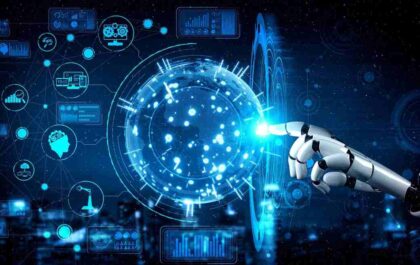In a world where speed, accuracy, and efficiency define success, AI workflow automation tools have become essential for businesses of all sizes. Platforms across industries—from finance and healthcare to e-commerce and startups—are adopting smart automation to reduce manual tasks, improve productivity, and create seamless operational flows. For a tech-forward platform like SmartTechCrunch, understanding how AI is shaping the future of business automation is not just relevant—it’s crucial.
This article explores the rapid rise of AI workflow automation tools, how they work, key benefits, and why they’re becoming the backbone of modern digital transformation.
Table of Contents
What Is AI Workflow Automation?
AI workflow automation refers to the use of artificial intelligence to streamline, optimize, and execute repetitive tasks within a business process. Unlike traditional automation, which follows fixed rules, AI automation can:
-
Learn from data
-
Make decisions
-
Predict outcomes
-
Adapt based on context
This means companies no longer need to rely solely on human teams to manage operational flows. AI systems handle repetitive tasks, allowing employees to focus on creative and strategic work.
Why AI Workflow Tools Are Exploding in 2025
Businesses today deal with massive amounts of data, customer interactions, and rapidly evolving technology. As a result, manual operations often lead to:
-
Delays
-
Errors
-
High operational costs
-
Inefficiencies
-
Customer dissatisfaction
AI workflow tools solve these problems by offering:
-
Real-time automation
-
Smart decision-making
-
Predictive analytics
-
Faster turnaround times
-
24/7 efficiency
This makes automation not just a convenience—but a competitive advantage.
Key Features of Modern AI Workflow Automation Tools
Today’s AI-powered automation platforms offer a blend of intelligent features such as:
1. Natural Language Processing (NLP)
AI tools can read, write, and understand human language, enabling automated email replies, customer support responses, and content sorting.
2. Predictive Decision Engines
Systems can anticipate trends, detect patterns, and suggest optimal actions—crucial for sales, marketing, logistics, and finance teams.
3. Intelligent Document Processing (IDP)
AI can extract data from invoices, forms, contracts, and reports with high accuracy to eliminate manual data entry.
4. Automated Workflow Builders
Users can create custom workflows using drag-and-drop interfaces without coding knowledge.
5. Cross-Platform Integrations
Modern tools connect with CRM systems, e-commerce platforms, HR software, and communication suites.
Top Use Cases Across Industries
AI workflow automation is reshaping businesses in every sector. Some of the most impactful areas include:
Customer Support Automation
AI chatbots and virtual assistants can resolve queries, track orders, and analyze customer sentiment—significantly reducing support costs.
Marketing Automation
AI helps companies run targeted campaigns, optimize ads, predict customer behavior, and personalize recommendations.
HR and Recruitment
From screening resumes to scheduling interviews, automation speeds up the hiring process and improves accuracy.
Finance and Accounting
AI manages invoicing, fraud detection, budgeting, and compliance workflows with minimal oversight.
E-commerce Operations
Automation tools handle repetitive tasks like inventory updates, order processing, and customer notifications.
How AI Workflow Automation Saves Time & Money
Businesses using AI automation tools report:
-
Up to 60% reduction in manual workload
-
40–70% faster process completion
-
Major cuts in operational costs
-
Higher customer retention
-
Better strategic decision-making
These improvements allow companies to scale faster and focus on innovation.
Challenges Businesses Face With AI Automation
While the benefits are substantial, organizations must also address:
-
Data privacy and security concerns
-
Integration challenges with legacy systems
-
Lack of employee training
-
Over-reliance on automated decisions
-
Need for continuous monitoring
The key is to adopt automation gradually and ensure teams understand how to work alongside AI.
The Future of AI Workflow Automation
By 2030, experts predict that nearly 85% of business processes will rely on some level of automation. AI will not only execute tasks—but optimize entire workflows autonomously. Companies that embrace this transformation early will be the ones leading the next generation of digital efficiency.
For tech-focused readers of SmartTechCrunch, one thing is clear: AI workflow automation isn’t just a trend—it’s the foundation of tomorrow’s smart, fast, and scalable businesses.
Related posts
Featured Posts
How Smart Living Is Transforming Everyday Life Today
Technology is evolving faster than ever, and its impact on our daily lives is becoming impossible to ignore. From how…
AI Automation: Transforming Digital Workflows in 2025
Artificial intelligence has become the backbone of modern digital transformation. In 2025, businesses across the world are no longer viewing…


